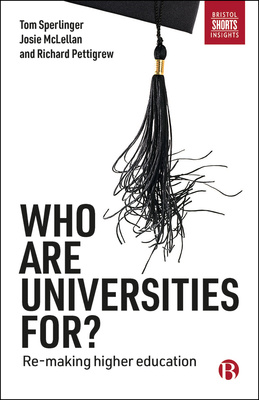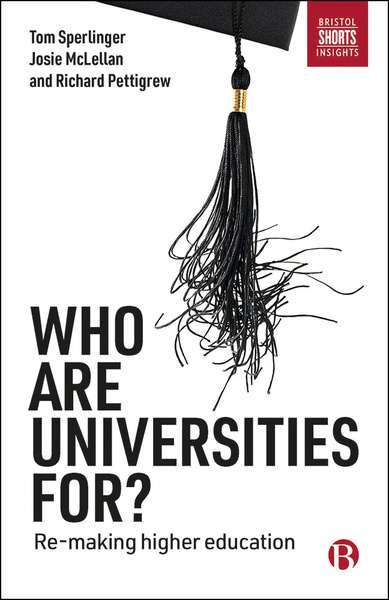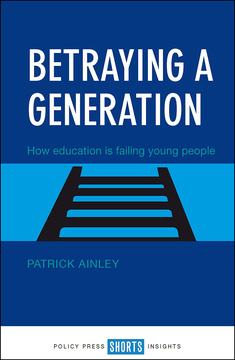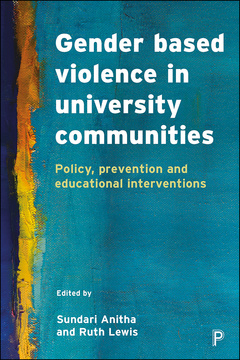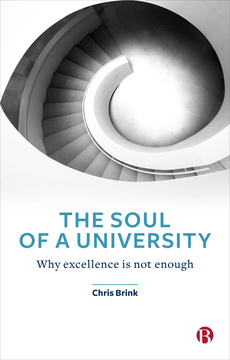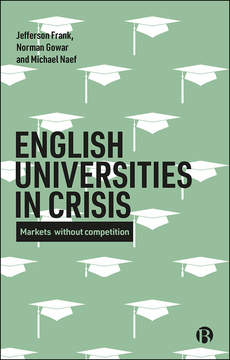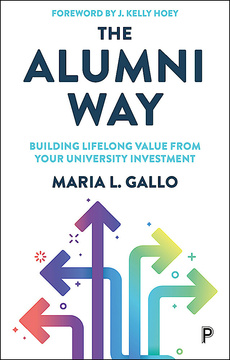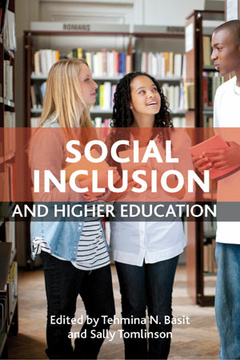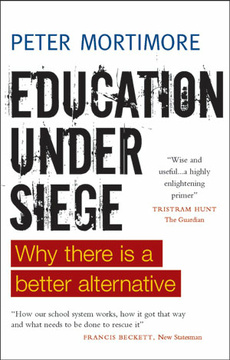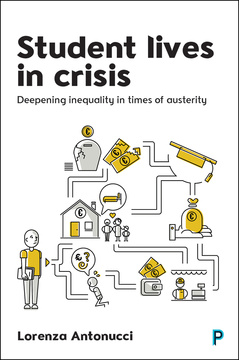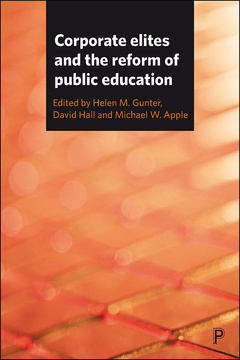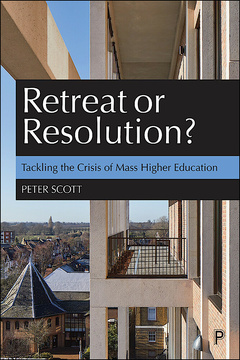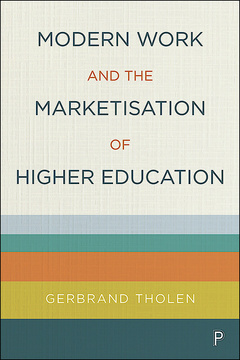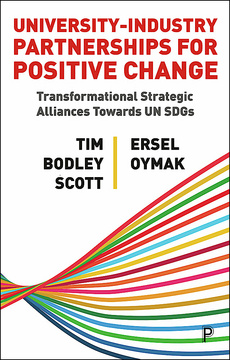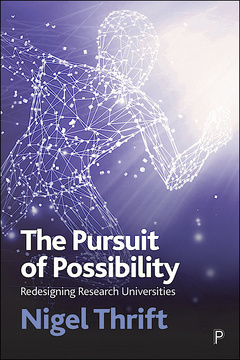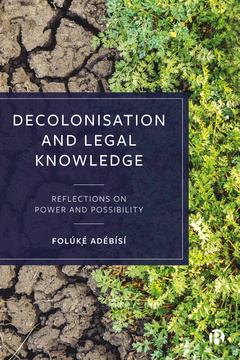Who are Universities For?
Re-making Higher Education
By Tom Sperlinger, Josie McLellan and Richard Pettigrew
Published
Sep 11, 2018Page count
200 pagesISBN
978-1529200386Dimensions
198 x 129 mmImprint
Bristol University PressPublished
Sep 11, 2018Page count
200 pagesISBN
978-1529200409Imprint
Bristol University PressPublished
Sep 11, 2018Page count
200 pagesISBN
978-1529200416Imprint
Bristol University PressThe university system is no longer fit for purpose. UK higher education was designed for much smaller numbers of students and a very different labour market. Students display worrying levels of mental health issues, exacerbated by unprecedented levels of debt, and the dubious privilege of competing for poorly-paid graduate internships. Meanwhile who goes to university is still too often determined by place of birth, gender, class or ethnicity.
Who are universities for? argues for a large-scale shake up of how we organise higher education, how we combine it with work, and how it fits into our lives. It includes radical proposals for reform of the curriculum and how we admit students to higher education, with part-time study (currently in crisis in England) becoming the norm.
A short, polemical but also deeply practical book, Who are universities for? offers concrete solutions to the problems facing UK higher education and a way forward for universities to become more inclusive and more responsive to local and global challenges.
"A groundbreaking plan for overhauling the universities system... [a] radical blueprint—making even the dreaming spires of Oxbridge [into] Open Universities", The Social Review
“A highly necessary blend of critical humanist analysis and concrete policy proposals” LSE Review of Books
"The book is a mix of shrewd practical proposals, egalitarian humanism and utopian vision." Professor Simon Marginson, Oxford University
"A groundbreaking plan for overhauling the universities system… [a] radical blueprint—making even the dreaming spires of Oxbridge [into] Open Universities." Social Review
"Urgent, radical and prescriptive, this polemic provides a radical manifesto for Higher Education in the era of the millennials. In the wake of student debt, a lack of social mobility and excess at the top, it breaks open the sterile complacency that has for too long gone unchallenged." David Lammy, MP
"This powerful, accessible and passionate book highlights the way current HE excludes and disadvantages, and proposes an inclusive system design fit for part-time as well as full-time study. Fascinating and persuasive." Professor Sir Alan Tuckett, University of Wolverhampton
"An important book that brims with ideas for transforming HE for a diverse, inclusive, post-disciplinary world. Refreshingly radical." Tim Blackman, VC, Middlesex University
Josie McLellan is Professor of History at the University of Bristol. She is a social and cultural historian, with particular research interests in public history and the co-production of research with people outside the university. She was a course director for the Foundation Year in Arts and Humanities, an alternative route into higher education from when the programme started in 2013 to 2017.
Richard Pettigrew is Professor of Philosophy at the University of Bristol, with particular interests in formal epistemology and the philosophy of mathematics. He set up the Foundation Year in Arts and Humanities. He has worked, outside the university, on projects addressing literacy in prisons and supporting adults with learning disabilities.
Tom Sperlinger is Professor of Literature and Engaged Pedagogy at the University of Bristol, where he is currently working with the Widening Participation team to introduce flexible opportunities for adult learners across the arts, sciences and social sciences. He set up the part-time BA in English Literature and Community Engagement and the Foundation Year in Arts and Humanities.
Introduction: Who are universities for?
Towards a university for everyone: some proposals
Invisible crises: the state of universities in the UK
‘It’s not for me’: outsiders in the system
Education and the shape of a life
False negatives: on admissions
The women in Plato’s Academy
Where do the questions come from?
Conclusion: The university-without-walls







